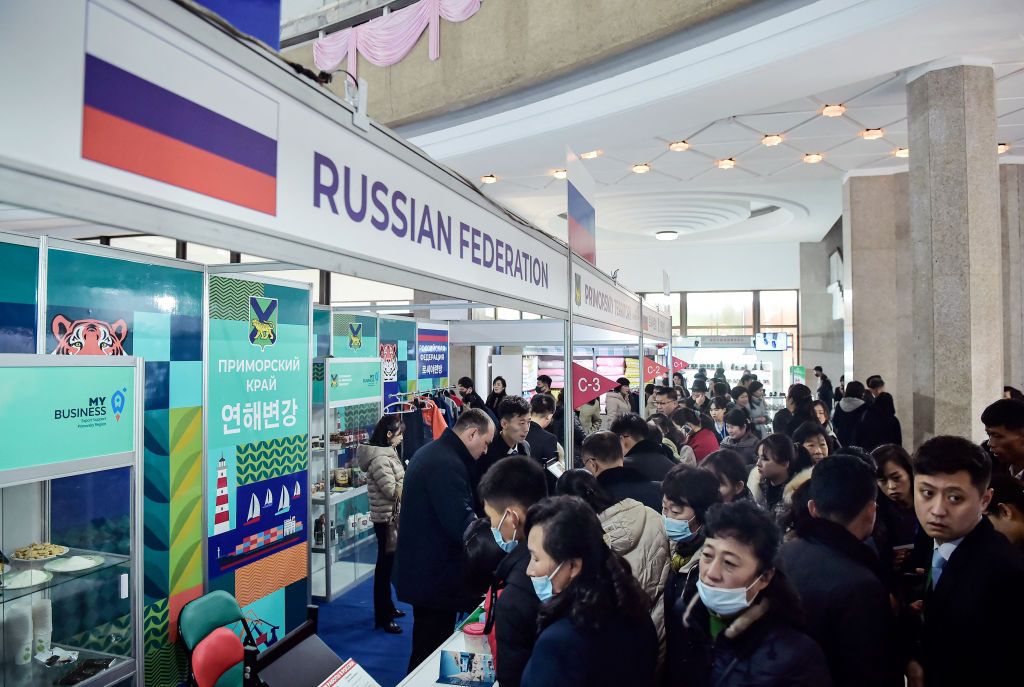North Korea’s Growing Presence in Russia: A Strategic Shift Amid Global Tensions
Introduction: A New Wave of North Korean Workers in Russia
In February 2024, South Korea’s Yonhap news agency reported a significant development in the evolving geopolitical landscape: thousands of North Korean workers had entered Russia to take up jobs in the construction sector. This surge in labor migration comes at a critical time, as North Korea’s leader, Kim Jong Un, reaffirmed his country’s unwavering support for Russia in its ongoing conflict with Ukraine. The move not only highlights the deepening alliance between Moscow and Pyongyang but also raises questions about compliance with international sanctions imposed on North Korea.
Labor Migration and Violations of UN Sanctions
The influx of North Korean workers in Russia is not merely a coincidence but appears to be a coordinated effort between the two nations. According to South Korea’s National Intelligence Service (NIS), as cited by Yonhap, the number of North Koreans entering Russia in 2024 reached 13,221, a staggering 12-fold increase from the previous year. Nearly 8,000 of these individuals reportedly entered the country under the guise of student visas, a potential workaround to bypass United Nations Security Council Resolution 2397. Passed in 2017, this resolution prohibits North Korea from sending its citizens abroad for work, a measure aimed at curbing Pyongyang’s ability to generate revenue for its nuclear and missile programs.
Russia, as a signatory to the resolution, is ostensibly violating international law by accepting North Korean laborers. This decision, while strategically advantageous for both nations, underscores the growing defiance of global norms by Moscow and Pyongyang. The move also reflects Russia’s desperate attempt to address its severe labor shortages, exacerbated by its ongoing war in Ukraine.
Russia’s Labor Crisis and the Role of North Korean Workers
The full-scale invasion of Ukraine has left Russia grappling with a acute labor crisis. Military mobilization and a sharp decline in migrant inflows have compounded the problem, pushing the country toward a precipitous population decline over the next two decades. The arrival of North Korean workers, while not a panacea for Russia’s economic woes, represents a pragmatic solution to alleviate some of the pressure.
Analysts at the Institute for the Study of War (ISW) suggest that these arrivals may signal "the beginning of larger influxes … that could more significantly help Russia’s labor shortage issues." However, the long-term economic impact of this labor migration remains uncertain. At best, it provides a temporary reprieve for Russia’s struggling economy, which continues to reel under the weight of international sanctions and the costs of its military campaign in Ukraine.
Deepening Military Cooperation: From Defense Pacts to Troop Deployments
Beyond labor migration, the relationship between Russia and North Korea has deepened in military cooperation. In June 2024, Russian President Vladimir Putin and Kim Jong Un signed a mutual defense pact, a move that solidified their alliance. This partnership extends beyond rhetoric, as North Korea has ramped up its involvement in Russia’s war efforts.
In addition to supplying weapons such as artillery ammunition and ballistic missiles, North Korea has reportedly deployed soldiers to support Russian forces. Up to 12,000 North Korean troops were stationed in Russia’s Kursk Oblast in the fall of 2024, tasked with countering a Ukrainian incursion in the region. These developments mark a significant escalation in Pyongyang’s military involvement in the conflict, blurring the lines between indirect support and direct participation.
Global Implications: A Challenge to International Order
The growing collaboration between Russia and North Korea poses a significant challenge to the international community. By openly violating UN sanctions and deepening military ties, both nations are signaling their disregard for global norms and institutions. This alliance not only complicates efforts to isolate Russia economically but also raises concerns about the potential for further destabilization in the region.
Moreover, the involvement of North Korean troops in Ukraine has the potential to draw in other actors, escalating the conflict beyond its current borders. The international community is left grappling with the implications of this emerging axis, as it threatens to undermine the delicate balance of power in Eurasia and beyond.
The Human Cost: North Korean Workers in a geopolitically charged climate
Amid the geopolitical maneuvering, the human dimension of this story cannot be overlooked. North Korean workers in Russia are often subjected to harsh working conditions, with limited freedoms and meager wages. Their deployment to a nation embroiled in conflict further heightens the risks they face.
Recent footage has emerged of a North Korean soldier captured by Ukrainian forces, who recounted his journey to Russia on a cargo ferry alongside over 100 other soldiers. "I didn’t know who I’d be fighting," he said, highlighting the lack of agency and the precarious circumstances under which these individuals are deployed. Their stories serve as a stark reminder of the human cost of geopolitical strategies and the ethical questions surrounding the exploitation of labor in conflict zones.
Conclusion: The Road Ahead for Russia and North Korea
The unfolding partnership between Russia and North Korea is a multifaceted phenomenon, driven by mutual strategic interests in the face of global isolation. While the influx of North Korean workers may provide temporary relief for Russia’s labor shortages, it does little to address the underlying economic and demographic challenges the nation faces. Similarly, North Korea’s deepening involvement in the Ukraine conflict heightens its own vulnerability to international condemnation and potential retaliation.
As the alliance between Moscow and Pyongyang continues to evolve, the international community will be compelled to respond. Whether through additional sanctions, diplomatic pressure, or other measures, the world will likely witness a further escalation of tensions. For now, the arrival of North Korean workers and soldiers in Russia marks the beginning of a new chapter in this complex and volatile geopolitical relationship, one that will have far-reaching consequences for both nations and the global order at large.












